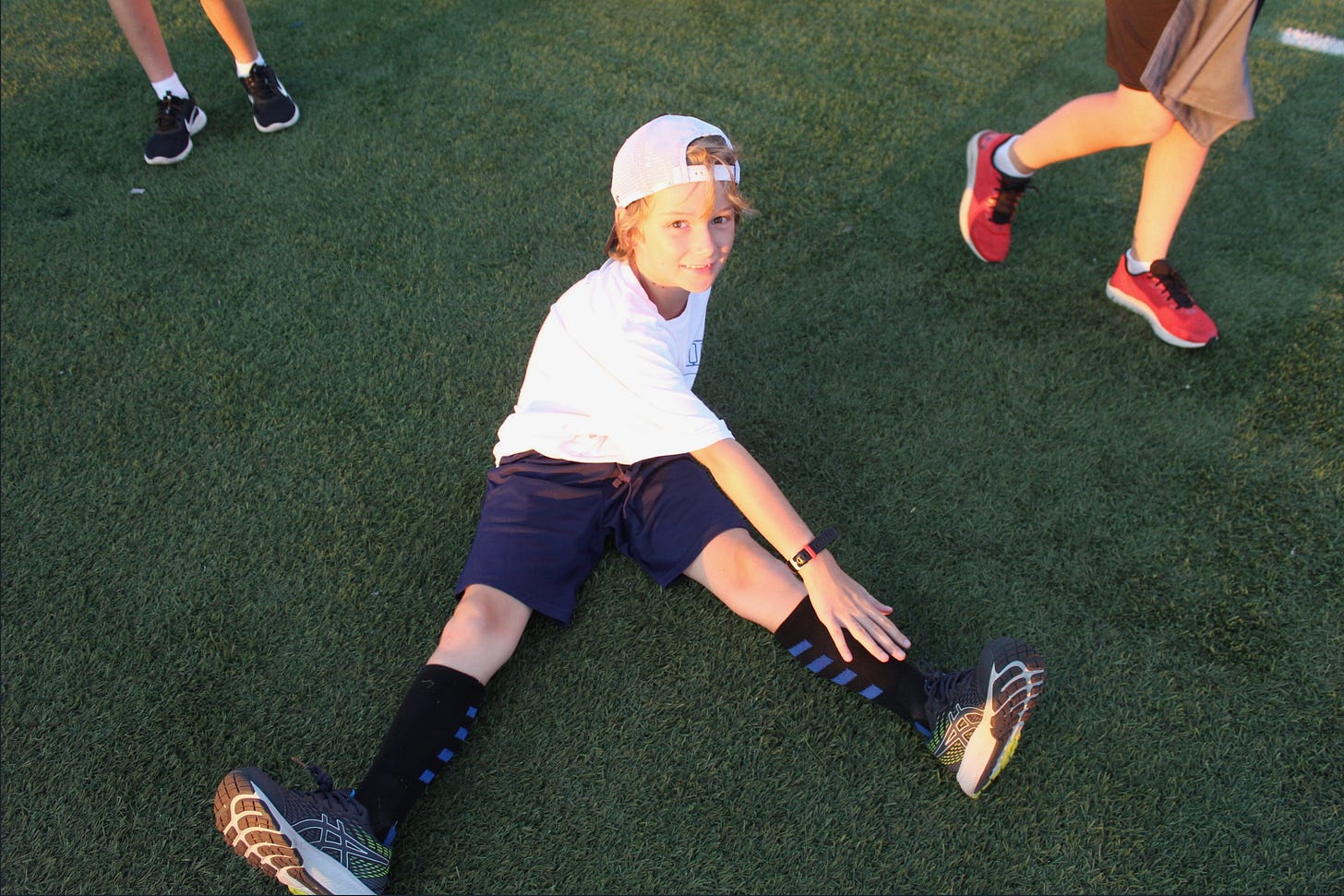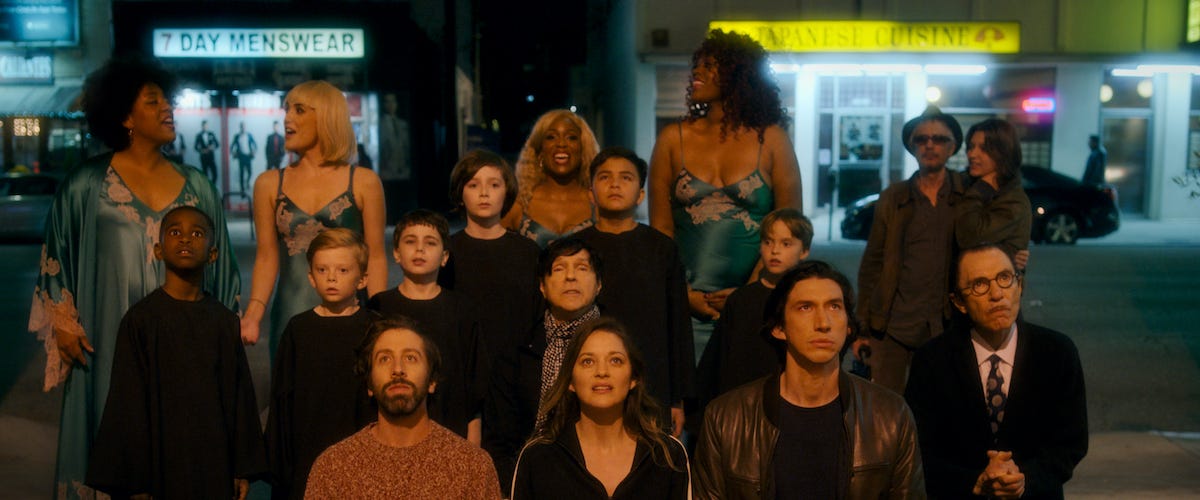Volume 3, Issue 77: We Aren’t the World (Safety Girl)
"You know we could go and spend ourselves like money."
Here is a button where you can subscribe to this newsletter now, if you have not previously done so. I do hope that you enjoy it.
The world is feeling heavy again. We will get back around to the heaviness soon; we’ve got plenty of time for that. I don’t know about you, though, but right now, I could use a little break from the heaviness.
So I would like to talk about Jock Jams.
The first Jock Jams album was released in 1994, and, according to an excellent history in The Huffington Post a few years ago, came about because ESPN had decided that there might be corporate value in branching out into worlds outside simply broadcasting live sports. The initial album, which they partnered with Tommy Boy Records to make, was a smashing success, and it emboldened the company to push forward with their outward expansion. In the next decade, ESPN would launch an ESPN.com Website (1994), the ESPN Zone Cafe (1998), ESPN: The Magazine (1998) and, infamously, ESPN: The Phone (2006). Those frustrated and exhausted by the manifest destiny of ESPN eating up the entire sports world—to the point that they rather clearly are attempting to turn college football into their own monopoly—can point to that as the instigating incident: All the Jock Jams.
The first Jock Jams volume was road-tested from the onset: The producers, which included the guy who played the organ at Madison Square Garden, specifically chose songs that were already popular at sports venues. Key to the songs was their simplicity: “The song can’t be too busy or have too many components because it has to engage the fans,” a producer said. “If the song has a part to chant along to or do certain dance moves to, it’s going to have an extra edge.” The first song on the first Jock Jams, after the inevitable Michael Buffer “Let’s Get Ready To Rumble” intro, is 2 Unlimited’s “Get Ready For This,” followed by “(Whoomp) There It Is.” Other songs include “The Power,” “Everybody Dance Now” and, of course, “YMCA.”
There would end up being five more volumes of the Jock Jams series. The next one began with Dan Patrick and Chris Berman—Dick Vitale kicks off Volume Three, which I’m comfortable saying is the only time Dick Vitale ever shared an anthology track listing with Dr. Dre—and by the fourth installment, it was less a musical arrangement than the sort of motivational video an arena plays on the Jumbotron when your team needs a rally. (The fourth Jock Jams features the credits of Austin Powers, J.K. Simmons and Yankees public address announcer Bob Sheppard.) By the end (and there were five installments in total), it was a glorified “Now That’s What I Call Music,” just the hits of 1999, unless Madonna’s “Ray of Light” is a pump-you-up jam at football stadiums everywhere and I’ve just been missing it.
What’s perhaps most remarkable about the Jock Jams series is that, 21 years after the release of the final volume, the songs off these albums are still the ones you hear at arenas across the country. To listen to Jock Jams today is to feel like you are at a game, right now. Once you establish a song as a sports arena staple, it becomes self-perpetuating: People associate it with sports, and then it becomes inextricable from it. There is no other context where people today are spinning House of Pain, or Fatboy Slim, or Black Box, except at sporting events. This ubiquity came as a surprise even to the artists, many of which never imagined their songs as Jock Jams in any way, shape or form. “I’d never thought that those songs would be played in sporting events or things like that,” Martha Walsh, the lady who sings on “Gonna Make You Sweat,” told HuffPo. “When I heard it the first time I said, ‘What? Really? Wow, OK.’ That never, ever crossed my mind.” Now the opposite has happened. You cannot listen to those songs without thinking of sports. And because Jock Jams, for many kids who grew up in the ‘90s, was the soundtrack to essentially every organized activity, from practice to school dances to dodgeball to church youth mixers, those songs, to many adults today, don’t represent just sports: They’re the soundtrack to growing up.
When my son returned from sports camp earlier this summer—two weeks where he just ran around playing sports and eating pizza and ice cream, just the best camp for nine-year-old boys imaginable—he had discovered all sorts of new music … and almost all of it were songs from Jock Jams. The counselors still played all those hits, because in the popular consciousness, if you are trying to evoke the feeling of “sports,” that’s what you play. When we play them in the car, William is always surprised I know these songs, because he’s so used to me, having fully committed to the Dad bit, not knowing any of the new songs he knows at all. (The DaBaby controversy is a perfect example of the very 40-something sensation of learning about who the popular people who are doing bad things are because of the bad things and not because of whatever it is the people got popular doing.) I started rapping the “It Takes Two” opening verse—which I know by heart, because I’m not a monster—and he was taken aback. “You know this song?” he said. “How do you know this song?” Because it came out when I was three years older than you are now, kid.
And these are still the songs they play at games. There haven’t been many new sports arena songs added in the last 20 years. Blur’s “Song 2.” “All I Do Is Win.” That weird Zombie Nation song. “Seven Nation Army,” obviously. But a shockingly large percentage of sports arena pump-up songs they play today are still from Jock Jams. That period from 1995-99 has seeded American, and global, sports culture for decades to come.
In fact, I think you can make an argument that it’s one of the few legacies Generation X ended up bestowing to our popular culture. It wasn’t Kurt Cobain, or Richard Linklater, or Public Enemy. It was “Friends.” Cable news. Bennifer. Britney Spears. And, yes, Jock Jams. This is probably not how I would have drawn it up. But we do not get to choose how Generation X is ultimately remembered. I suppose we should feel fortunate to be remembered at all.
Here is a numerical breakdown of all the things I wrote this week, in order of what I believe to be their quality.
Stop Taking Joy in the Unvaccinated Sick, Medium. It is one thing to be furious with the unvaccinated for holding the rest of us back. It is quite another to see them in the hospital and say, yeah you can eat it. I don’t mean to be all Hey Maybe Don’t Root For Sick People To Not Get Well here, but we are still all human beings, you know.
Ten Takeaways From a Very Weird Tokyo Olympics, New York. They finished it, which is not nothing, but … let’s never have an Olympics like that again.
MLB Playoff Urgency Index, MLB.com. The Phillies probably need to do this while they can.
Internet Nostalgia: “Don’t Tase Me, Bro,” Medium. What the “Don’t Tase Me Bro” guy is up to these days will not surprise you in any way, shape or form.
Our “What Color Is The Dress?” Memes Are Now Racial Slurs, Medium. Not a great moment in human history, this.
What Happened to All the 100-Win Teams? MLB.com. There were four two years ago, and there probably won’t be any this year.
This Week In Genre History: Stardust, SYFY Wire. I will confess that I barely remembered this movie.
The Thirty: Future Retired Numbers For Every Team, MLB.com. I think there might be five different Cardinals who will be in the Cardinals Hall of Fame on the team right now, and maybe even more.
PODCASTS
Grierson & Leitch, discussing “The Suicide Squad,” “Annette” and “John and the Hole.”
Seeing Red, Bernie and I discussed my weekend in St. Louis.
Waitin' Since Last Saturday, we are back. We did a big national preview, with SEC-specific preview coming next week.
LONG STORY YOU SHOULD READ THIS MORNING … OF THE WEEK
“What Bobby McIlvaine Left Behind,” Jen Senior, The Atlantic. Probably the best piece I’ve read all year. I’ve been gearing up for all the 20th Anniversary of September 11 pieces, but I don’t see how any of them are going to top this one.
BOOK I’VE READ THAT YOU SHOULD READ
“The Long Walk,” Richard Bachman. Stephen King has a new book out that’s excellent—happy to toss it back to you, Steve!—but this is the one I still make sure to read at least once a year. It is absolutely insane that he wrote this as a teenager.
ONGOING LETTER-WRITING PROJECT!
Write me at:
Will Leitch
P.O. Box 48
Athens GA 30603
CURRENTLY LISTENING TO
“Night City,” The Sword. I’ve always had a soft spot for this Austin-based band of metal doofs, and they’re actually playing here in Athens next month. Everyone has their own risk tolerance, but I’m vaxxed and doing the right things so I’m gonna go see me some rock shows. Chuck Klosterman once wrote that The Sword sounded like “a bunch of bison being pushed over a cliff.” That remains perfect 16 years after he wrote it.
Remember to listen to The Official Will Leitch Newsletter Spotify Playlist, featuring every song ever mentioned in this section.
Got to make the pilgrimage last week:
Have a great weekend, all.
Best,
Will








Glad you linked that “What Bobby McIlvaine Left Behind” piece by Jen Senior. Utterly captivating and heartbreaking from beginning to end.